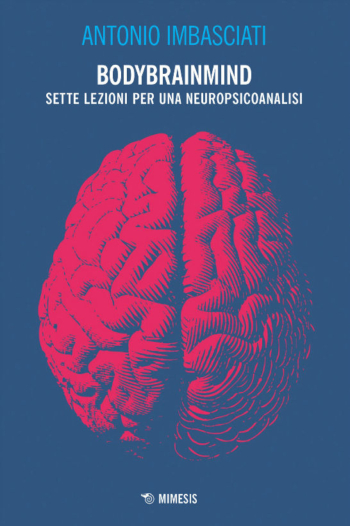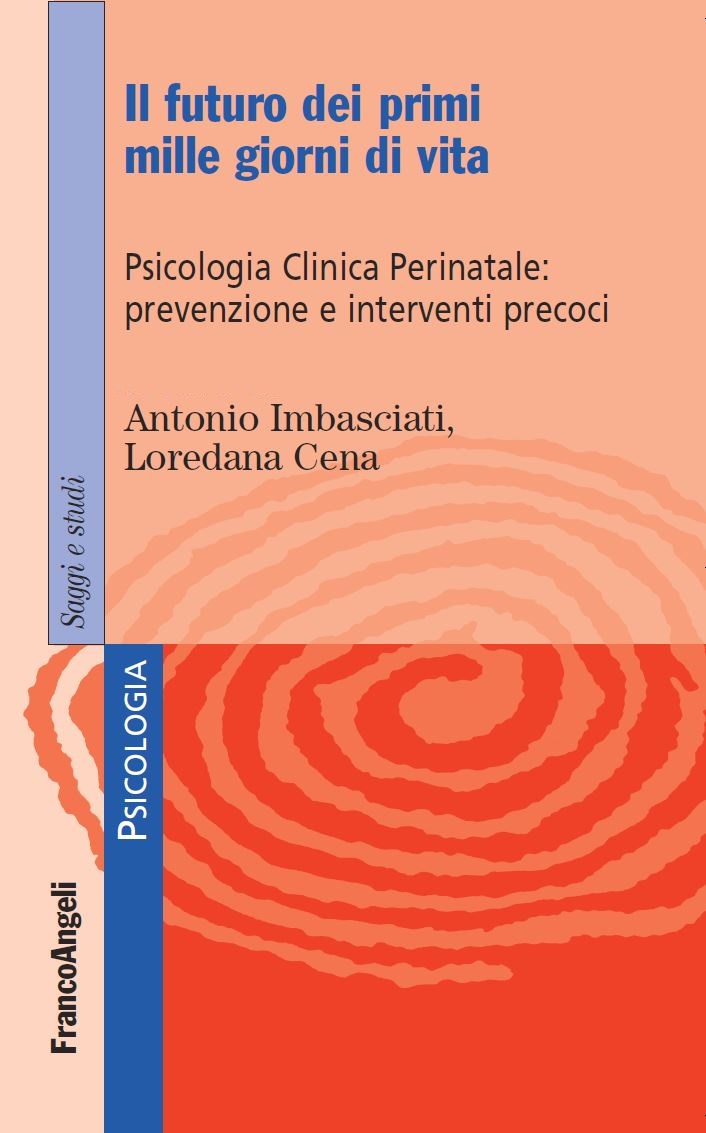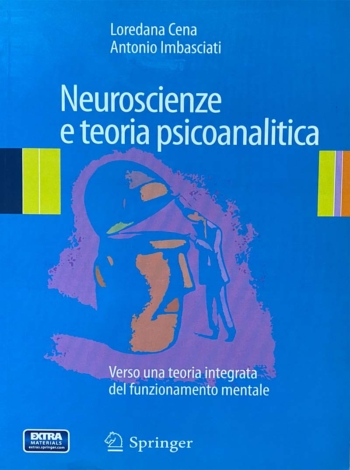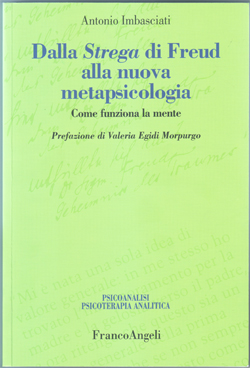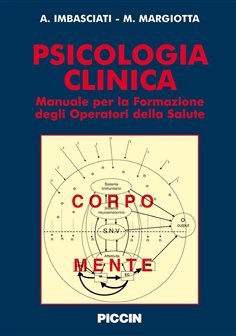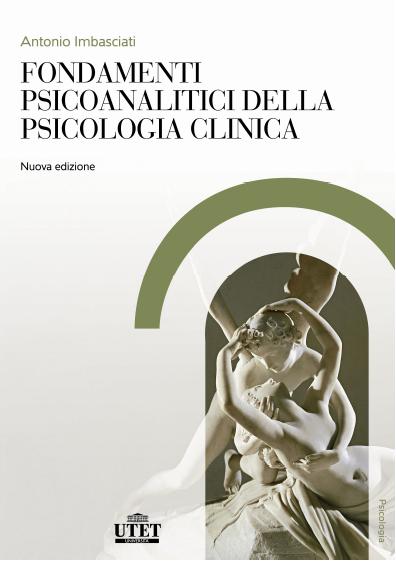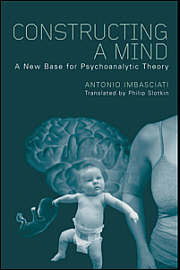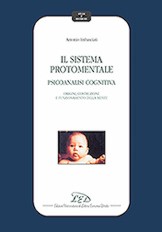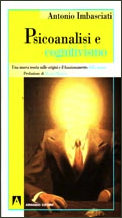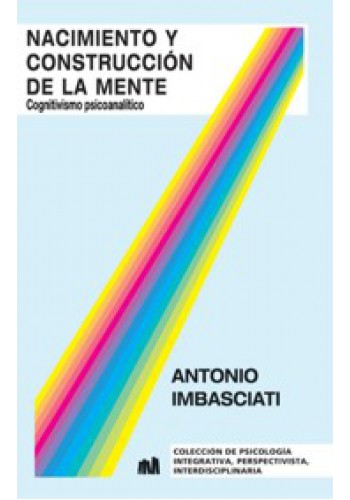Printed books
[Of the area of competence 5. Psychoanalysis and Cognitive Science]Neuropsychoanalysis aims to check the neurobiological processes which may explain what psychoanalysis describes as psychic emotional and unconsciouss events which drive human behaviours, motivations and individual life events, and what a person believes and thinks in his/her personal consciousness. This is the study about the relations between mind and brain.
Nobody has a mind equal to an other’s one, and Neuroscience has demonstrated thet nobody has the same brain of another human being. Brain is constructed (follow)
In the first thousand days of life, counting from conception, a first individual functional matrix – synaptic networks – is formed which will condition every subsequent elaboration of the life experiences of that individual and therefore every further construction of functionality in the individual’s brain, i.e. every subsequent neuro-psycho-somatic development of that person. This first […]
Today psychoanalytic clinical practice is not that Freud’s. Infant and infant-with-mother/parents psychoanalysis opened up large perspectives that have deeply affected the whole psychoanaltic theory and practice. Psychoanalytic clinical practice changed and progressed greatly. But in its theoretical frame today psychoanalysis has a number of concepts and theories, so that a confusion and different laguages have developed. This is due to an obstinate almost religious preservation of old concepts along new ones. In particular energy-drive concepts of Freud’s Metapsychology contradict the progress of current psychoanalysis, and yet they are used. (…)
In Freud’s time “psychology” was a proper psychology of consciousness: it meant what one could consciously know about himself. Freud discovered unconscious events: he must explain to his contemporary scientists how these phenomena could exsist an how an unconscious mind might function. He wrote his metapsychology (1915): “meta” (=beyond) would say that mind could be considered also beyond consciouseness psychology. He supposed that the unconscious was moved by an instinctual force (libido) for which he used the german word “trieb” (=push). This word was hardly transalated as “drive” and in neolatin as“pulsion” . (…)
The progress of medicine has made the medical profession highly technical and fragmented in may different specializations, thus decreasing the spaces where a doctor can practice that human care which used to characterize his role. Complementarily, other helping professions have been enhanced, first of all nurses, and many other health graduation programmes (three- and now also five-year) have been created. The dimension of “human” care that the physician can no longer carry out is transferred to these “new doctors”. “Rehumanizing medicine” and reducing the “medicalization” of health services is a project in people talk about. (…)
Great misunderstanding exists when trying to comprehend what is meant by Clinical Psychology and its connections with Psychoanalysis. Just as vast is the misunderstanding of psychoanalysis itself: people talk about drive, Oedipus, libido, super ego and repression as if these were Freud’s “discoveries”. In fact, they are not discoveries at all, but concepts by which Freud tried to construct a theory –his metapsychology– using the means available at the time to explain what his ingenious method of exploration had found out and described in the clinical field. There is great confusion about what is meant by “discovery”, or rather by “theory” or “method”, just as there is confusion about the description of a phenomena and its explanation. Discoveries remain, theories change and methods develop. (…)
Psychoanalysis could be successful not merely for its clinical value – to cure unexplained syndromes that were considered incurable– or for its method, judged very ‘strange’ and not scientific, but also for the theory that Freud created to explain the origins and the functioning of the mind: the Drive Theory. (…)
Psychoanalysis could be successful not merely for its clinical value – to cure unexplained syndromes that were considered incurable– or for its method, judged very ‘strange’ and not scientific, but also for the theory that Freud created to explain the origins and the functioning of the mind: the Drive Theory. (…)
Freud, in describing his fundamental discoveries on human psyche also wanted to explain them. In this explanatory intent, he outlined a general theory of mental functioning, the Energy-and-Drive Theory which he called Metapsychology. This theory was drawn up on the basis of the sciences at the end of the nineteenth century. Today the development of experimental psychology and neuroscience provides a picture of the mind that can no longer reconcile with the Freudian Metapsychology. By confusing Freudian discoveries with his theory, some today wonder if Freud should be considered dead. Therefore, psychoanalysis stands relatively isolated in the current scientific context.
All those who practice helping professions –from social workers to physicians, from educational staff to teachers– feel that they need to have some psychological competences. But everyone believes to slightly be a psychologist. There is the idea that with good intentions and some experience, psychological competence is acquired, and that psychology is the refinement of human sensitivity. On the contrary, Psychology is part of Science today; in fact it is a group of sciences, each of them specific, with its own method, its own techniques and its own training programmes. How the required scientific formation might be acquired then? To get a Psychology degree is the main route, but some psychological competence is necessary for a variety of health professionals: physicians, nurses, physiotherapists, educational staff, social workers, midwives and a wider range of health workers operating in the health care system, education, as well as in industry and organisations. The three-year degrees, indeed numerous, that have been founded, and not only in the socio-health field, officially include in their curricula two or more psychological sciences. Among these Clinical Psychology stands out. (…)
The Freudian theory was successful because it seemed to offer an explanation of the psyche from hypotheses in line with the sciences of his time: the concepts of libido, drive, psychic energy, discharge, instinct, economic principle tracked the contemporary scientific principles and discoveries of neurophysiology and thermodynamics. In such a context, for a long time and up to present day, the popular stereotypes in psychoanalysis are identified with Freud’s theory. This theory nevertheless has been widely criticized, also within psychoanalytical Associations, and for several decades now. In spite of this, the Freudian theory seems “to withstand”. A reason for such a persistence, in the author’s view, can be identified in the fact that different psychoanalytic models have been proposed at different times, without however clearly delineating an alternative explication of what Freud wanted to explain. His Drive Theory did have an explanatory value in this time. Today it may maintain its heuristic value, which may still be useful to understand affects and therefore helpful in clinical practice, but it no longer has an “explanatory” value. To Freud this latter was perhaps more important than the former, but nowadays it is untenable. (…)
The Freudian theory was successful because it seemed to offer an explanation of the psyche from hypotheses in line with the sciences of his time: the concepts of libido, drive, psychic energy, discharge, instinct, economic principle tracked the contemporary scientific principles and discoveries of neurophysiology and thermodynamics. In such a context, for a long time and up to present day, the popular stereotypes in psychoanalysis are identified with Freud’s theory. This theory nevertheless has been widely criticized, also within psychoanalytical Associations, and for several decades now. In spite of this, the Freudian theory seems “to withstand”. A reason for such a persistence, in the author’s view, can be identified in the fact that different psychoanalytic models have been proposed at different times, without however clearly delineating an alternative explication of what Freud wanted to explain. His Drive Theory did have an explanatory value in this time. Today it may maintain its heuristic value, which may still be useful to understand affects and therefore helpful in clinical practice, but it no longer has an “explanatory” value. To Freud this latter was perhaps more important than the former, but nowadays it is untenable.

